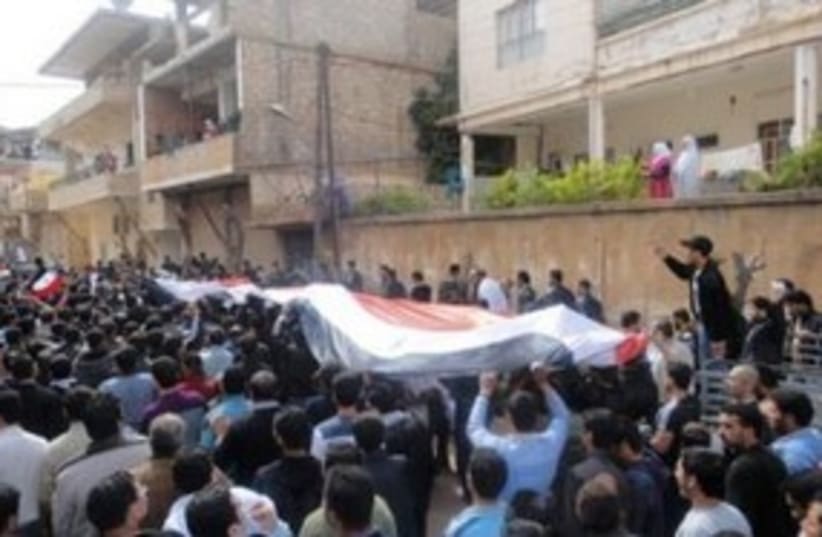RELATED:UNSC condemns attacks on embassies in SyriaSyria starts 'national dialogue' - without opposition"The Syrian army is the guardian of the people and the state. Therefore we call on the army to do its duty and protect people from the cruelty of the regime and stand with brave protesters," said a declaration read at the end of Tuesday's meeting.It said Syrian forces should withdraw from the country's villages, towns and cities. Human rights groups say at least 1,400 civilians have been killed since protests began in March against Assad's autocratic rule.The declaration condemned Iran and the Hezbollah movement in Lebanon for backing Assad, and implored the Arab League and the Organization of Islamic Conference to support the people.The declaration also spoke of the opposition's eventual objective to recover the Golan Heights from Israeli occupation.Ahmad Abdul-al, who read the declaration to the gathering of some 200 dissidents, predicted Assad's government would fall in one of two ways."Either elements of the army or elements within the regime will force a change so that change will come from within," Abdul-al, who lives in Saudi Arabia, told Reuters."Or we will continue with protests and we will continue the uprising so that the regime will actually peacefully hand over to a transitional power and that council will call for an election," he said. "That's what we are hoping to see."The declaration said Islamic, humanitarian and media commissions would be established to help organize the opposition, which is forming plans for a shadow government ready to take over should the Assad government fall.The absence of a unified, organized opposition has been regarded with frustration by foreign governments critical of Assad's brutal repression of pro-democracy protesters.Emadeddin al-Rachid, one of the organizers of Saturday's conference in Istanbul, said the Syrian opposition opted to meet in Turkey as Arab states would not allow them to hold such meetings, and visa requirements in Europe were too strict.
Syrian activist says opposition "doesn't want revenge"Among the participants was a frail old man who had been a symbol of resistance to Assad's father almost half a century ago. Barely able to walk without assistance, former leader of the Syrian Muslim Brotherhood Issam al-Attar declared Assad's government to be a dying regime.Attar recalled how he had been stopped from re-entering his homeland in 1963 after performing a haj to Mecca, following a coup by the Arab nationalist Baath party that brought Assad's father to power.Within months, the brotherhood network in the southern city Hama took up arms only to be swiftly quelled.It was a foretaste of the elder Assad's brutal repression of another armed uprising there in 1980, in which, according to some accounts, up to 30,000 civilians were killed."If we look at history there is no way that dictatorship can continue," Attar told Reuters."The extreme force that the regime has used has not been able to stop the people," Attar said, adding that there downfall of the Assad government had become inevitable.Though once executive president of the Brotherhood in the Arab world, Attar has lived in Germany since the 1970s, and he stressed that he is no longer an official in the movement.But he saw the Brotherhood as a force for democracy in Syria as it has been elsewhere during the "Arab Spring", and dismissed ideas that it would incite Sunni Muslims against Assad's dominant, but minority Alawite sect."We want to be open with the rest of the world, we want to be open to the current times as in being modern," Attar said. ""We don't want revenge," Attar said. "We want unity for all Syrian people because we believe that the challenges of developing our country are bigger than the challenge of removing the regime."
